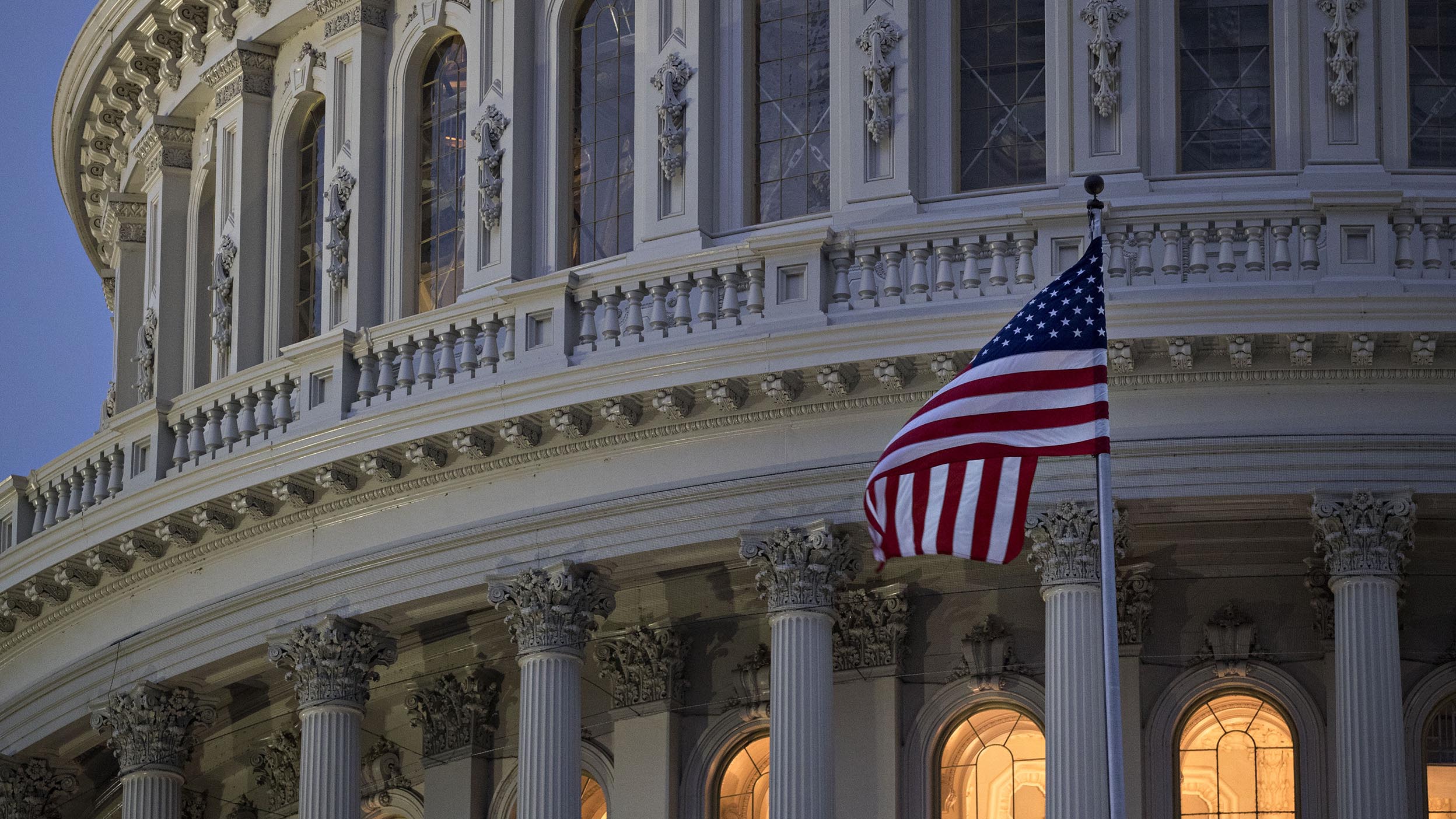
Markets and Economy Above the Noise: Investing through ambiguity
We discuss the future of US inflation, the outperformance of European stocks, the potential impact of new tariffs, and the independence of the Federal Reserve in this month’s column.

While the setup was good coming into 2025, markets struggled with ongoing changes to the US policy approach.
We may not be at peak policy uncertainty, but past peaks have been attractive buying opportunities for investors.
European markets are excited about a generational shift for increased defense spending, leading to fiscal stimulus.
The first rule of policymaking is "Don't talk about policymaking." No, wait, that's the first and second rules of Fight Club. The first rule of policymaking is "do no harm." Why do I cite this rule now? While the setup for markets was good coming into 2025 (the US economy was resilient and inflation had stabilized1), markets have struggled this year as investors assess ongoing changes to the nation’s policy approach.2
I recognize that suggesting our policymakers are doing harm could alienate some readers, but this isn’t a comment on the policies. I leave it to the voters to render their opinions, and I’m confident that the US economy is strong enough to adjust to different fiscal and trade policies. Rather, it’s the uncertainty regarding our future policies that can harm the economy. Already, consumer sentiment is waning.3 Business sentiment may not be far behind. It’s difficult to put plans in place without knowing the rules.
The seventh rule of Fight Club is “Fights will go on as long as they have to.” Therein lies the current rub for the markets. The longer the uncertainty on tariffs persists, the longer the volatility may persist. I expect we’ll get past it, as we always have, with greater policy clarity and dovish signals from the Federal Reserve.
The focus will then shift to the extension of the Tax Cuts and Jobs Act. That’s something the market can likely get behind.
The 93rd worst day for the Nasdaq Composite Index in the past 30 years was on Monday, March 10, 2025.4 Painful, yes, but nothing compared to the 12.3% decline on March 16, 2020, at the start of the COVID-19 shutdown five years ago.
On days like those, investors may be tempted to deviate from their long-term plan and pull money out of the market. Let’s remember why a long-term view is so important. According to my calculations:5
And that’s one to grow on.
Market downturns of 5% to 10% occur almost annually, a fact most are familiar with by now. Market corrections (10% to 20%) are less frequent. Since 1945, the Dow Jones Industrial Average has experienced 15 corrections, with an average recovery time of eight months.6
… market downturns have tended to coincide with peaks in economic policy uncertainty. Alas, we may not be at peak uncertainty yet. Regardless, past peaks have represented attractive buying opportunities for investors.7
Social Security is “the biggest Ponzi scheme of all time.” – Elon Musk
I don’t think Bernie Madoff is in jeopardy of losing his status as the orchestrator of the biggest Ponzi scheme of all time. While Social Security, like a Ponzi scheme, relies on current contributions to pay benefits, the similarities end there.
Social Security isn’t fraudulent. Unlike a Ponzi scheme, it’s transparent and legally mandated. A Ponzi scheme collapses when it fails to attract new investors or faces high redemption demands. Social Security, however, has mechanisms to adjust benefits and taxes as needed. Although some may question the political will to implement these adjustments, the alternative is unlikely. One could argue that Social Security has done more than almost any other program to alleviate poverty among the elderly.
Q: Would a recession be a good thing? Wouldn’t it drive interest rates lower, making it easier for the US to fund the debt?
A: No. Recessions are never beneficial. They don’t serve as a therapeutic measure or detox for the economy. Instead, recessions often lead to significant job losses and lifetime earnings can be adversely affected. Some of the unemployed may never return to the workforce. We should strive to avoid recessions at all costs.
Regarding debt funding, a recession would exacerbate the debt situation by reducing tax revenue and increasing spending through automatic stabilizers. In fact, the opposite is true: Debt is sustainable when a nation's nominal growth rate exceeds its borrowing costs.
European stocks have had a great start to the year. What’s driving the rally, and how sustainable is it? I posed the question to Alessio de Longis, Head of Investments for Invesco Solutions. His response:
“A byproduct of the geopolitical tensions between the US, Ukraine, and Russia is Europe finding itself caught in the crossfire. The eurozone and the European Union, more broadly, have realized that the Pax Americana, which provided protection through international cooperation with the US for 80 years post-World War II, is no longer as secure.
In European circles and markets, there’s excitement due to a generational shift in the willingness and ability to increase defense spending, leading to substantial fiscal stimulus. This change was unexpected in economic circles just three to four months ago. It marks a significant inflection point in fiscal policy, which may significantly boost an otherwise relatively anemic private sector growth.”
My travels took me to an event in Hershey, Pennsylvania, “The Sweetest Place on Earth,” where I heard a profoundly sad yet inspiring story from the keynote speaker and fellow Michigan Wolverine, Austin Hatch. Austin survived two plane crashes. The first claimed the lives of his mother and two siblings. The second, which occurred nine days after he had been offered a scholarship to play basketball at the University of Michigan, killed his father and stepmother and left Austin in a coma. Severely injured, Austin had to relearn how to walk, talk, and eat. Despite these challenges, he eventually fulfilled his dream of being a four-year varsity player at the University of Michigan.
Austin's message centers around overcoming adversity through the G.R.I.T. framework, which stands for Growth, Resilience, Integrity, and Teamwork. He emphasizes that adversity is an opportunity to grow and that by adopting a growth mindset, being resilient, maintaining integrity, and working as a team, individuals and organizations can help overcome any challenges they face.
Source: Bureau of Economic Analysis, Jan.31, 2025, based on the annual percent change in core personal consumption expenditures (PCE).
Source: Bloomberg L.P., March 20, 2025, based on the returns of the S&P 500 Index.
Source: University of Michigan Consumer Sentiment Index, March 31, 2025.
Sources: Bloomberg L.P. and Invesco, March 20, 2025.
Sources: Bloomberg L.P. and Invesco, March 20, 2025.
Source: Bloomberg L.P., Dec. 31, 2024, based on the returns of the Dow Jones Industrial Average.
Sources: Bloomberg L.P. and Invesco, March 20, 2025. The Baker, Bloom and Davis daily news-based Economic Policy Uncertainty Index is based on newspaper archives from Access World New's NewsBank service, which contains the archives of thousands of newspapers and other news sources from across the globe. The index is constructed based on the number of articles that contain at least one term from each of three sets of categories. The first set is economic or economy. The second is uncertain or uncertainty. The third set is legislation or deficit or regulation or Congress or Federal Reserve or White House.

We discuss the future of US inflation, the outperformance of European stocks, the potential impact of new tariffs, and the independence of the Federal Reserve in this month’s column.

US inflation concerns are likely overdone, and any tariffs from the Trump administration are likely a one-time price shock rather than a new inflationary trend.

Revisit 2024 themes in “12 months of Above the Noise.” A resilient US economy, contained inflation, and an easing Federal Reserve created a positive backdrop for markets.


Get the latest information and insights from our market strategists, investment experts, and tax and estate specialists.
You may unsubscribe from these communications at any time by emailing us at inquiriescanada@invesco.com or by calling us at 1.800.874.6275
Important information
NA4341640
Image: Bloomberg Creative Photos/Getty
Some references are US-specific and may not apply to Canada.
All investing involves risk, including the risk of loss.
Past performance does not guarantee future results.
Investments cannot be made directly in an index.
This does not constitute a recommendation of any investment strategy or product for a particular investor. Investors should consult a financial professional before making any investment decisions.
The University of Michigan Consumer Sentiment Index is published monthly, based on a telephone survey designed to assess US consumer expectations for the economy and their personal spending.
Dovish refers to an economic outlook that generally supports low interest rates as a means of encouraging growth within the economy.
The Dow Jones Industrial Average is a price-weighted index of the 30 largest, most widely held stocks traded on the New York Stock Exchange.
Monetary easing refers to the lowering of interest rates and deposit ratios by central banks.
The Economic Policy Uncertainty Index is compiled from three underlying components that quantify newspaper coverage of policy-related economic uncertainty, reflect the number of federal tax code provisions set to expire in future years, and use disagreement among economic forecasters as a proxy for uncertainty.
Inflation is the rate at which the general price level for goods and services is increasing.
An inflection point is an event that results in a significant positive or negative change in the progress of a company, industry, sector, economy, or geopolitical situation.
The Nasdaq Composite Index is the market-capitalization-weighted index of approximately 3,000 common equities listed on the Nasdaq stock exchange.
Personal consumption expenditures (PCE), or the PCE Index, measures price changes in consumer goods and services. Expenditures included in the index are actual US household expenditures. Core PCE excludes food and energy prices.
The S&P 500® Index is an unmanaged index considered representative of the US stock market.
In general, stock values fluctuate, sometimes widely, in response to activities specific to the company as well as general market, economic and political conditions.
The risks of investing in securities of foreign issuers can include fluctuations in foreign currencies, political and economic instability, and foreign taxation issues.
The opinions referenced above are those of the author as of March 24, 2025. These comments should not be construed as recommendations, but as an illustration of broader themes. Forward-looking statements are not guarantees of future results. They involve risks, uncertainties and assumptions; there can be no assurance that actual results will not differ materially from expectations.
This link takes you to a site not affiliated with Invesco. The site is for informational purposes only. Invesco does not guarantee nor take any responsibility for any of the content.